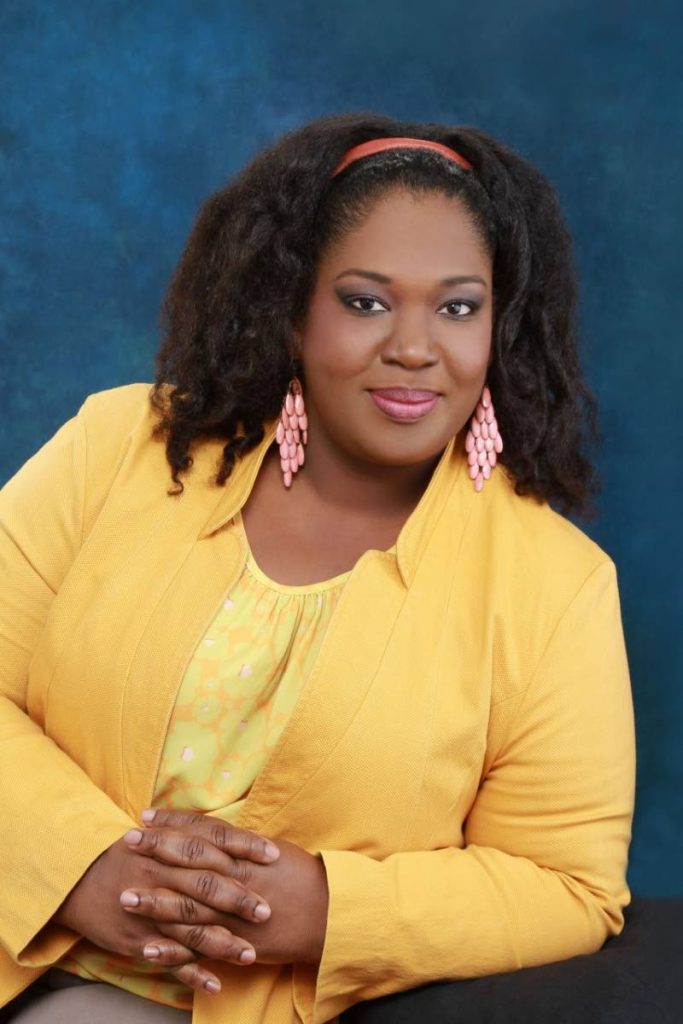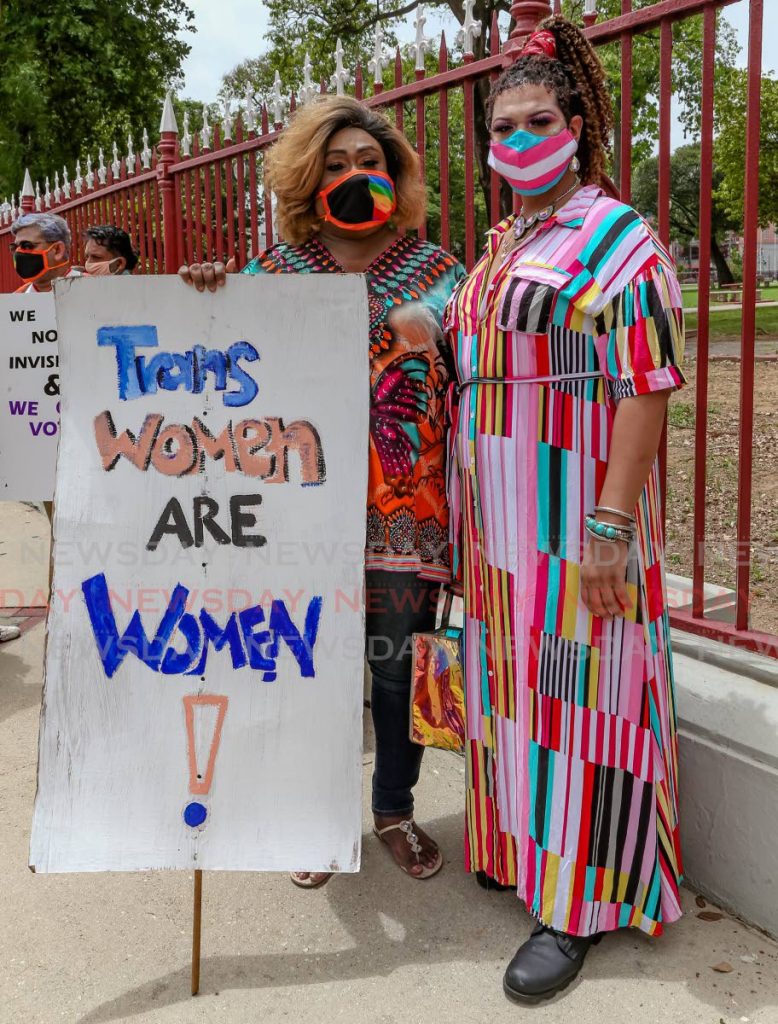Dr Sue-Ann Barratt: TT must do more to stop gender-based violence, promote LGBTQIA rights

An act of gender-based violence she witnessed among her peers as an undergraduate student moved Dr Sue-Ann Barratt to try to understand why young people were behaving in a way she thought was more common among elders.
“It really struck me, in some way it disturbed me because I did not expect young people, like myself to really subscribe to some of the beliefs that I saw older heads in the neighbourhood engaged in.
“Yes, there was gender-based violence but you would think that younger people would step away from it. That was my naive view at the time. When I saw it, I wanted to understand what are the perceptions that would lead someone to conflict,” she told WMN.
Barratt, the new head of the Institute for Gender and Development Studies (IGDS) at the University of the West Indies (UWI) St Augustine, said the incident brought about a curiosity that led her to her current vocation.
She is no stranger to the university, having joined the IGDS in 2014 as an assistant lecturer, instructor III and most recently lecturer and graduate coordinator. Barratt has also held positions on UWI’s campus ethics committee as a research committee member for communication studies, a faculty board member of the faculty of humanities and education, a member of the gender advisory board, and has reviewed several university courses.

She also worked in academia at departments across UWI St Augustine and Mona, Jamaica campuses, the Caribbean School of Media and Communication (Carimac), and in media at the Trinidad and Tobago Broadcasting Network. She started her professional career as a broadcast journalist but found her passion for understanding human communication and interaction.
Barratt, a graduate of UWI, holds a PhD in interdisciplinary gender studies, a master's degree in communication studies and a bachelor's degree in media and communication studies with political science. She was appointed on August 1, and will serve a three-year term, having replaced Dr Gabrielle Hosein.
Her specialisations include communication conflict and gender-based violence, interpersonal interaction, mass media and computer mediated communication, social media and user generated content, gender and ethnic identities, person perception, feminist studies and Carnival studies.
Barratt explained while gender-based violence was not new in TT, it was something that needed to be addressed with greater detail and urgency than what was being done now.
“We have to confront the cultural norms, attitudes, belief systems and ideologies that remain unquestioned and the things that we take for granted in casual conversation.” She explained that the conversation needed to move away from victim blaming to accounting for the act of violence, the means for prevention and justice.
“We have greater awareness and consciousness, and we have people willing to learn. When an incident occurs, we are upset, hurt and angry but we are these things for different people. It is not about identity politics — race, class, education and skin colour.
“If a woman, for example, is a victim, there is a notion of a 'pure victim,' that is, the victim did not do anything that could explain why she has suffered. We still have that view and we contradict ourselves and are complicit when we believe that some people are more deserving of care and some people look for it, even when we are most appalled and morally panicked.”
Barratt added the solutions continue to put responsibility on the victim because of the norms, beliefs systems that influence naive thinking and interpretation and analysis.
She added that women continue to remain vulnerable, most notably in the workplace, where there were pay gaps between males and females with the same portfolio and where sexual harassment was concerned.
“Equality is a myth; we need to aim for equity. We (society) have made some gains with the presence of men compared with women in some cases of pay but there is still a pay gap. Among them are income security and sexual harassment. And generally, there is a level of uncertainty about what constitutes as sexual harassment depending on context and relationship. On the other hand, there is a diminishing of the impact and true importance of this problem because attitudes, genuine ability to understand, cultural norms that maintains sexism and misogyny. It remains a sustained vulnerability.”
Barratt said during her term it was hoped that there would be more open discussions on gender justice and inclusiveness of the LGBTQIA community. She said society has made some strides in accepting the LGBTQIA community but recognising their rights remains an unfortunate struggle.

“There is absolutely no threaten force if two people love each other and they are not solely heterosexual. There is no threat except the perception that it can threaten procreation, which is a myth, because one can still procreate if they choose to. There is this notion that humans must couple to have babies.
“A lot of time people discriminate against members of the LGBTQIA community because they are seen as less normal or less human because they are not doing this fundamental human purpose.”
In April 2018, the High Court ruled that the country’s laws criminalising same-sex intimacy between consenting adults were unconstitutional and impinged on basic human rights.
Barratt said the younger generation were more accepting of the LGBTQIA community but were sometimes compelled to conform to the belief systems of their families or religious institutions.
Stability needed for raising children
Barratt lives in a small community in Santa Cruz and having grown up with six siblings, believes in the foundation of family, love, support and trust.
She is not married, nor does she have children, but said parenting was a job that should not be taken lightly because it required being responsible for another human’s life.
“I believe that parenting is a profound job and believe in committed relationship and strong support systems. Having grown up in a single parent home I've seen how much of a responsibility it is.
“A family means a team, whatever that team would be — a group of best friends or a traditional husband and wife, to raise children really relies on teamwork.”
Barratt said women were still expected to carry out certain types of responsibilities, and a decision to have a family should be carefully considered, because the expectation for a professional woman was different from men.
“Unlike men, women are still cast with a lot of gender responsibilities, no matter who you are or where you are from. It is very important that if you as a professional woman making a decision to have children, to have family and a support system, because it is a lot to balance.”
Learning through a pandemic
The UWI is no stranger to blended learning, as many schools have implemented this approach during the past due to the covid19 pandemic.
Barratt said the IGDS continues to facilitate and support its students and potential students, by finding strategies that can cater for full-time and part-time students.
“The institute’s vision is continuity, sustainability and knowledge building. It is about building accessibility and using online space to accommodate people through self-directed learning along with classroom learning.”
She said while online learning has its advantages there were also disadvantages with technological connectivity and personal interaction.
“Managing with covid19 has been difficult but it has not been insurmountable because we were already comfortable with online tools as a general part of our teaching. We shifted smoothly though the qualitative elements of student engagement and satisfaction do present challenges.”
The aim moving forward, Barratt said was not to have online learning as an emergency mechanism but rather one that was responsive and adaptable to students’ needs.
Barratt currently serves on the RC32 regional representative for Latin America and the Caribbean in the International Sociological Association (2020) and a member of the Caribbean Studies Association, the International Communication Association, the International Sociological Association and the International Association of Media and Communication.


Comments
"Dr Sue-Ann Barratt: TT must do more to stop gender-based violence, promote LGBTQIA rights"